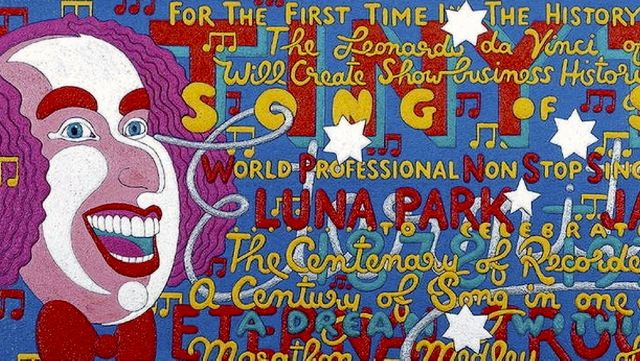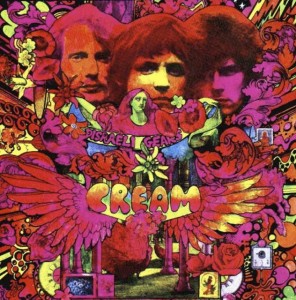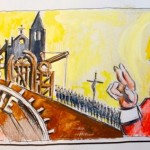by Quentin Cockburn
The end is nigh. Grim Reaper has come for the local car industry. ‘Local’? I hear you say, ‘Pshaww’ I say. Twas never local. ‘Employment’? Not really. It took almost as many people to prop up the industry than sustain it. And Innovative? Dynamic? Desirable?
I think the end happened early in 71. Dad bought the new Datsun 1200 coupe. It had a radio, reclining bucket seats, cheap to run, quite fast, comfortable, heater and de-mister. It worked, started regularly, didn’t weigh fifteen tons, the paint and trim were all good. A hatchback. How convenient? That was the end, the last forty years, just the reality biting. And finally, both Ford and Holden, gone the way of its motorcycle counterparts, the BSA, the Velocette, and the Norton Commando. Consigned to history’s rubbish bin. Designing to the very end cars the majority of us didn’t want, and worse still, were not considered to be chic nor desirable.
What went wrong?
I’ll tell you, it happened in the sixties. Thinking since then got stuck. It was about the time when the last Morris JB van rolled off the line at the Morris plant in Birmingham. That was about the same time the new improved Morris Major Elite, ‘up engineered’ by Australians rolled off the assembly lines in Adelaide and Sydney. These were real cars, now considered to be classics. This is how empires rise and fall. At its apogee, the Morris empire and its proud Australian subsidiary were doomed.
Its nemesis came as the first locally manufactured world car, the Morris/Austin 1100 with hydrostatic suspension; “It Floats on Fluid”! It offered the latest in choice and comfort. It also killed Morris. It eschewed a tradition of “nice looking cars”. Not grunty enough, not adaptable, (except for the superb Austin Kimberley six), and there just wasn’t much you could do to tweak the transverse front wheel drive engine. From thereon, all downhill. Death was spelt ‘Marina’, and in turn codified as ‘P76’. Morris, engulfed by Leyland, vanished. Innovation gone wrong. Gone for ever. Innovate and be damned! GMH and Ford saw and concurred.
In the new century what have we witnessed? It’s ‘Back to the Future’ in car design. The VW Bug, the Morris Mini, the Fiat Bambino, all making a splash, a sensational amalgam of 50’s and sixties design chic and desirability. What’s happened? Everyone wants one. The world is now full of retro make believe. Even Bugatti is there at the top end with the Bugatti Veyron, all 1000 hp of multi point space age carbon fibre grunt and penile projection.
A new future beckons for the local car industry. We propose a revisitation of the sixties. Take those familiar styles, and re-engineer them for todays market. There was nothing wrong with the Morris marque.  The Minor, the Major, the Oxford, and the Morris JB. We can rebuild! Same external appearance, same trendoid, beret wearing desirable aesthetic, with new brakes, drive trains, transmissions, cooling systems and electrics. The Ambassador, (Morris Oxford) prevails in india, not because theres no choice, but it’s a cultural institution, a valued status symbol. No one cares about collecting Commodores, they are naf and dull, whereas, even Bendigo possess, two Morris Minor Clubs, and a Morris Major Club.
The Minor, the Major, the Oxford, and the Morris JB. We can rebuild! Same external appearance, same trendoid, beret wearing desirable aesthetic, with new brakes, drive trains, transmissions, cooling systems and electrics. The Ambassador, (Morris Oxford) prevails in india, not because theres no choice, but it’s a cultural institution, a valued status symbol. No one cares about collecting Commodores, they are naf and dull, whereas, even Bendigo possess, two Morris Minor Clubs, and a Morris Major Club.
I’ve been told plans are afoot to retool the Elizabeth plant to create Australia’s’ new car. The plant, as rumour has it will be run, owned and operated by locals. For Australia there’s exports world wide. The marque, “Austral” will be our new manufacturing emblem. The Austral demonstrates to the world that we are not lackeys but innovators of the first order. All Austral models will have Trafficators. The commercial vehicles will possess door operated semaphore hand signalling. Both electric and crank start will be included in all models! The future is ours to hold. And cherish.
This is just a beginning. From the design staff, the draft sketches promise much, it’s within our grasp. Make it happen!!!











